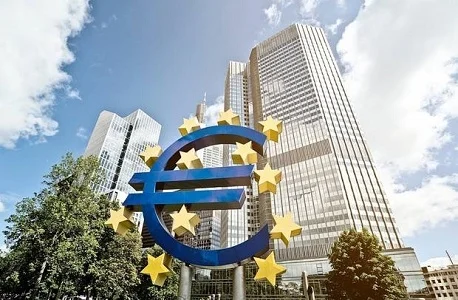SGX Commodities Day: LMC Automotive takes stock of electric car demand
9th January, 2023 | Luke Jeffs

Electric vehicles are becoming more popular each year, so much so more electric vehicles were sold in a single week in 2021 than were sold in all of 2012
Sam Adham, Senior Powertrain Analyst at LMC Automotive, gave the SGX Commodities Day an overview of the key trends in the global electric vehicle industry, a key market in the transition to a sustainable economy.
This sector is also important to SGX after it launched on September 26 a suite of commodity contracts based on four electric vehicle (EV) battery raw materials – cobalt metal, cobalt hydroxide, lithium carbonate and lithium hydroxide.
Adham told the delegation the global focus on realising climate neutrality has trickled down to the electrification of the automotive industry.
He said: “While hybrid vehicles and other technologies can contribute towards decarbonisation, policymakers and automakers in the major markets of China, Europe, and North America have thrown their weight behind battery-electric vehicles (BEVs).”
Electric vehicles are becoming more popular each year, led by China and Europe. In fact, more EVs were sold in a single week in 2021 than were sold in all of 2012, and this was in a slow year for vehicle sales.
And the demand is set to compound over the next eight years, increasing at a compound annual growth rate of 21.7% to near 40 million vehicles sold globally in 2030.
But this creates a huge demand for the rare metals needed to make the batteries in electric vehicles.
Adham said: “A colossal lithium-ion battery supply chain is being built in parallel to power these vehicles. The constituent metals in the battery’s cathode are a maker or breaker in the BEV transition. The roadmaps of automakers and battery cell manufacturers are driving demand for certain materials, and this is placing huge pressure on the mining industry and the rest of the upstream to deliver.”
Adham told the SGX Commodities Day in London that the demand for battery metals will likely be concentrated towards the end of this decade, adding: “However, there a number of risks to this BEV forecast, and to the automotive market overall.
“A potential supply bottleneck of battery-grade lithium could hold back the transition to BEVs. This would constrain the number of BEVs that can be produced, maintaining an elevated cost of battery production, and poses a risk if the technology cannot be democratised beyond wealthy buyers.”
There are possible remedies to the unprecedented demand for lithium, Adham explained, such as limiting the size of batteries or switching to an alternative such as sodium-ion but: “There is ultimately only one effective option, which is to make meaningful investments to bring more lithium assets online.”
He added: “While huge sums are being invested into the downstream end of the supply chain – vehicles, battery cells and packs, and active materials – there is comparatively little cash being put into developing and ramping up raw material extraction and processing. For various reasons, automakers are very risk-averse with the notion of directly investing in mining enterprises, despite the industry screaming for them to do so.”
China controlled in 2021 almost two thirds of the world’s lithium processing and refining capacity, according to energy research firm Rystad Energy, relying on lithium mines in South America and Africa. Chile, Argentina and Bolivia have the world’s largest lithium reserves.
Adham said: “China’s dominance over each state of the supply chain has shifted the imperative of this energy transition from a climate neutrality issue to a geopolitical race.”
While there are obvious pressures facing the battery metals industry as demand for electric vehicles increases exponentially over the next few years, Adham said supply should be unaffected if a co-ordinated approach can be reached between regulators and the various firms involved in the processing and refining of these rare metals.
Adham concluded: “The lithium supply-demand situation does not necessarily have to be a disaster if there is better foresight and coordination between each stage of the battery supply chain and with policymakers. China is very good at this, which is why it will be much more insulated from the risk regarding raw material supply.”
The SGX Commodities Day was held in the Westin Hotel in London in November, and brought together some of the world’s top commodities traders, brokers and analysts, including SGX’s many commodities experts.
The presentations are being published in a series.
The first article covering the SGX Commodities Day in London is available here.
The second article in the series, featuring SGX's head of global sales Pol De Win, is available here
The third article includes an overview of SGX Commodities by the group's director Tan Tee Yong and is available here.
The fourth piece in the series covers a panel discussion on the changing global demand for iron ore.
The fifth article considers how the SGX's Baltic Exchange is supporting the global freight industry.


